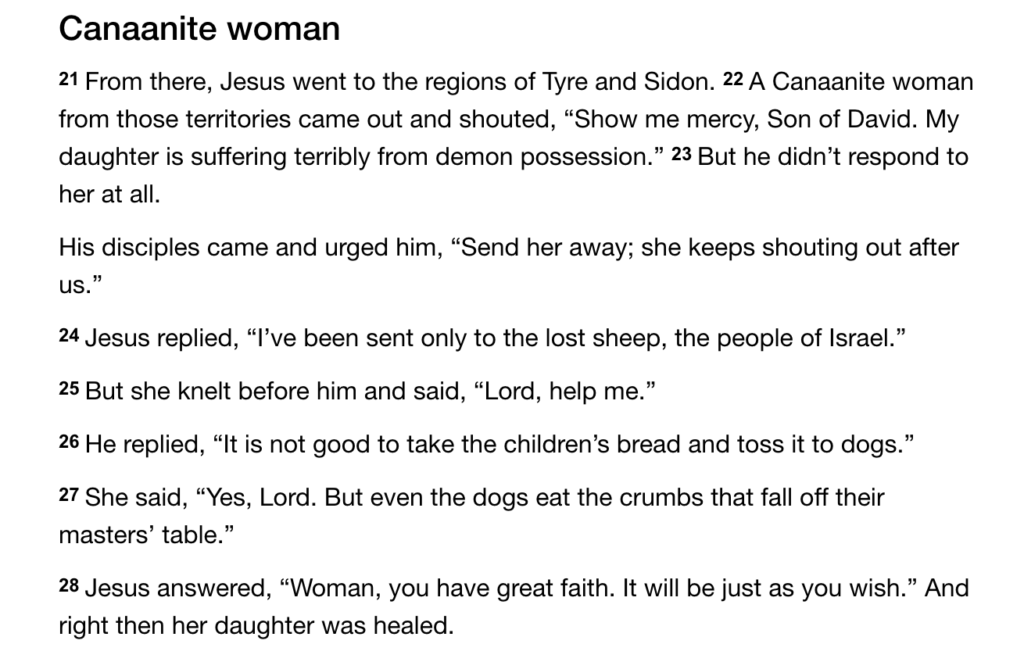Finding A New Rhythm
This month, we are beginning the season for our church of “Advocating Hope.” This is a season where we envision giving our attention to those in our church, city, and society who might easily be overlooked. They are the people that we often (unceremoniously) call the “least of these.” And while we use that phrase as a catch-all, and it does come from Scripture, it is important to know that the people who don’t have a voice, whose lives have been disrupted by systems, and who might find themselves in situations that are different from our own are not really defined by their status of “have-nots.” At least not in God’s eyes.
Because it is often these exact people that Jesus seems to think have something more than the rest of us. Look at the way Jesus interacts with the woman at the well in John 4, or the man who is possessed by demons in Mark 5. These are, perhaps, the kind of people that we might label as the “least of these.” They don’t seem to have a lot to offer because they don’t have a lot. Or, if they do have a lot (like, say, Zacchaeus), we don’t want anything to do with them because of how they came to have a lot.
But these are the people that Jesus is drawn to and it is the people that are drawn to Jesus. In many ways, it is like they are magnets that are drawn to one another (and equally interesting, it is the religious leaders who seem to be repelled by Jesus–go figure! I’m sure there are plenty of lessons there, but we will have to save those for another time).
In Jesus’ eyes, these people are not just the “have-nots.” They are the people who are ready to receive something from Jesus, and they too are the people who are prepared, then, to share something with the rest of us who might not be as ready as we think are. In Jesus’ eyes, the “least of these” are really those who have so much to offer us because they are prepared to see and encounter Jesus while the rest of us think we already have. We’ve been there, done that. But not so for those who truly know what Hope is all about.
Which brings us to an interesting story found in Matthew 15:21-28. Take a moment to read this story below.

Here we have a story where Jesus initially responds how many of us might respond when asked at a stop-light for some spare change, or by someone we walk past who needs a moment of our time. Jesus doesn’t respond to her at all. Which leads to a great lesson for the disciples, who are quick to want to send this woman away. But by the end of the story, it is the woman in need of Hope in her life that is exonerated. In fact, she makes the disciples look like the bad guys (which is unusual, because normally they aren’t the bad guys–just misguided and a little slow).
This woman’s wish is fulfilled; her request is granted; her Hope becomes reality.
And this, I think, is where Jesus is brilliant. Because yes, Jesus does come to bring Hope to the hopeless. Yes, Jesus is on a mission to redeem and restore all of humanity. But in the midst of all of this, Jesus is also wanting us to understand what Hope really is. Hope is not just wanting to get our way. Hope is wanting to get God’s way. I heard it said that Christian Hope is “bringing God’s future to now.” Which sounds like something Jesus said in the Sermon on the Mount when he was teaching his disciples to pray. And it looks like encounters like this one where Jesus does give this woman what she wants–not just because she asks, but because what she asks for is in alignment with what God wants–the healing of the world and the removal of the dark forces that have entered this world, namely Sin and Death.
Jesus, and this Canaanite woman (which by the way, we haven’t even gotten into this aspect of cultural lineage, heritage, and racial overtones present in this story), teach us that to Hope doesn’t have borders. It doesn’t have ethnicities or socio-economic levels. It doesn’t only apply for one gender or to those who can afford it. Hope, ultimately, is something greater than those markers. Hope is participating in God’s future now. It is bringing Heaven to Earth everywhere and for all people.
And so, as we embark on this season, and as we continue to discuss, my encouragement this week is to find this rhythm. The rhythm that Jesus and the early Christians were in harmony with: that Hope, Christian Hope, has no boundaries. And in fact, it is those that we might be tempted to see as “the least of these” who likely have the most to offer in teaching us about this very Hope.

